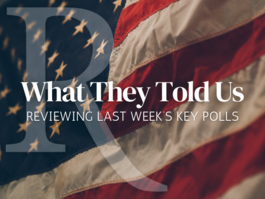The Sickening Addiction That May Kill Reform
A Commentary By Joe Conason
If Congress fails to enact health care reform this year -- or if it enacts a sham reform designed to bail out corporate medicine while excluding the "public option" -- then the public will rightly blame Democrats, who have no excuse for failure except their own cowardice and corruption. The punishment inflicted by angry voters is likely to be reduced majorities in both the Senate and the House of Representatives -- or even the restoration of Republican rule on Capitol Hill.
Many of those now talking down President Obama's health care initiative were in Washington back in 1994, when Bill Clinton's proposals to achieve universal coverage were killed by members of the president's own party. The Democrats lost control of Congress that November in a historic repudiation, largely because of public disillusionment with their policy failures.
Nearly every poll now shows the American people demanding change in the health care system, with majorities favoring universal coverage and, in many surveys, a government plan that competes with private insurance. But powerful Democratic politicians, especially in the Senate, are pretending not to hear. They adopt all sorts of positions, from bluntly opposing any substantive change this year to promoting bogus alternatives. They claim to be trying to help Mr. Obama gather the votes he will need, or to assist him in attracting Republican votes. They insist that the country can't afford universal care, or that the public option won't pass (before debate has even begun).
Indeed, many of the most intransigent Democrats don't bother to make actual arguments to support their position. Nor do they seem to worry that Democratic voters and the party's main constituencies overwhelmingly support the public option and universal coverage.
Sen. Mary Landrieu, D-La., has simply stated, through her flack, that she refuses to support a public option. Sen. Ron Wyden, D-Ore., who has tried to fashion a plan that will entice Republicans, warns that the public option is a step toward single-payer health care -- not much of an objection to a model that serves people in every other industrialized country with lower costs and superior outcomes. Sen. Dianne Feinstein, D-Calif., feebly protests that her state's mismanagement by a Republican governor must stall the progress of the rest of the country. Sen. Kent Conrad, D-N.D., says he has a better plan involving regional cooperatives, which would be unable to effectively compete with the insurance behemoths or bargain with pharmaceutical giants.
The excuses sound different, but all of these lawmakers have something in common -- namely, their abject dependence on campaign contributions from the insurance and pharmaceutical corporations fighting against real reform. Consider Landrieu, a senator from a very poor state whose working-class constituents badly need universal coverage (and many of whom now depend on Medicare, a popular government program). According to the Center for Responsive Politics, a nonpartisan watchdog outfit, she has received nearly $1.7 million from corporate medical interests, including hospitals, insurance companies, nursing homes and drug firms, during the course of her political career.
The same kind of depressing figures can be found in the campaign filings of many of the Democrats now posing as obstacles to reform, notably including Sen. Max Baucus, D-Mont., the chairman of the Senate Finance Committee, who has distinguished himself in the most appalling way. The Montana Standard, a news outlet in his home state, found that Baucus has received more campaign money from health and insurance industry donors than any other single member of Congress. "In the past six years," the Standard found, "nearly one-fourth of every dime raised by the Montana senator and his political-action committee has come from groups and individuals associated with drug companies, insurers, hospitals, medical-supply firms, health-service companies and other health professionals."
Whenever Democratic politicians are confronted with this conflict between the public interest and their private fund-raising, they take offense at the implied insult. They protest, as a spokesman for Sen. Landrieu did, that they make policy decisions based on what is best for the people of their states, "not campaign contributions." But when health reform fails -- or turns into a trough for their contributors, who will believe them? And who will vote for them?
COPYRIGHT 2009 CREATORS SYNDICATE, INC.
See Other Political Commentary.
See Other Commentary by Joe Conason.
Views expressed in this column are those of the author, not those of Rasmussen Reports.
Rasmussen Reports is a media company specializing in the collection, publication and distribution of public opinion information.
We conduct public opinion polls on a variety of topics to inform our audience on events in the news and other topics of interest. To ensure editorial control and independence, we pay for the polls ourselves and generate revenue through the sale of subscriptions, sponsorships, and advertising. Nightly polling on politics, business and lifestyle topics provides the content to update the Rasmussen Reports web site many times each day. If it's in the news, it's in our polls. Additionally, the data drives a daily update newsletter and various media outlets across the country.
Some information, including the Rasmussen Reports daily Presidential Tracking Poll and commentaries are available for free to the general public. Subscriptions are available for $4.95 a month or 34.95 a year that provide subscribers with exclusive access to more than 20 stories per week on upcoming elections, consumer confidence, and issues that affect us all. For those who are really into the numbers, Platinum Members can review demographic crosstabs and a full history of our data.
To learn more about our methodology, click here.



